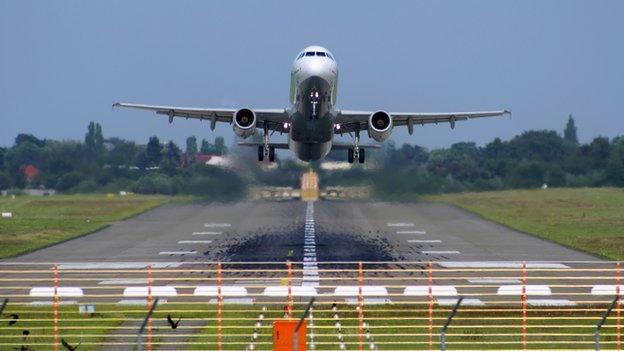Air passenger duty cut scrutinised
- Published
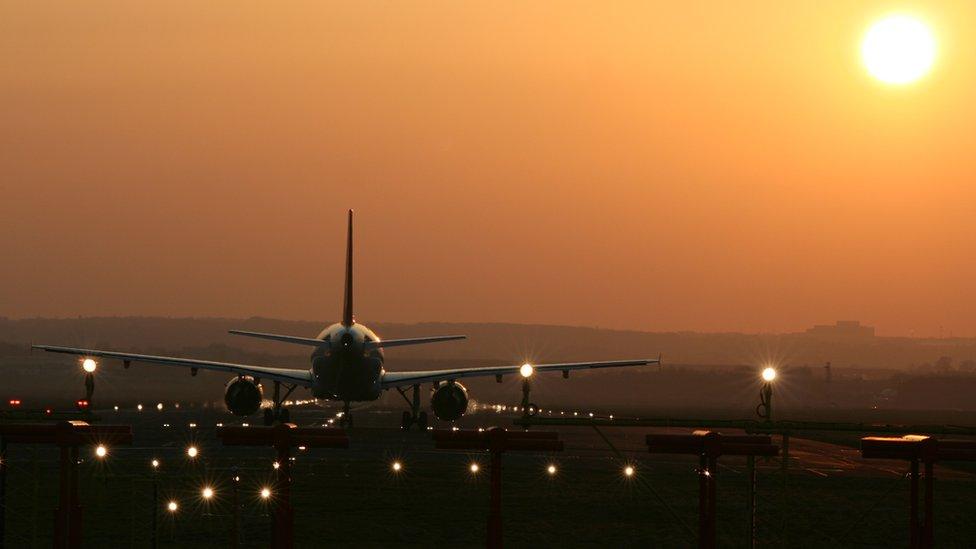
The Scottish government wants to cut the passenger duty by 50% in the next five years
A plan to halve airport passenger duty (APD) is coming under renewed scrutiny as a public consultation on the measure comes to a close.
Climate campaigners have called on the Scottish government to rethink the cut, saying it is "inconsistent with Scotland's climate commitments".
But airlines and Scottish airports have said it would boost tourism, investment and business activity in Scotland.
SNP ministers have said they will cut the duty by 50% between 2018 and 2021.
The consultation on the proposed cut will end on Friday.
Air passenger duty rates for the UK currently range between £13 and £146 depending on the distance of the flight and the class of seat.
Ministers hope that reducing APD will increase the number of direct flights to and from Scotland.
But Scottish Labour leader Kezia Dugdale has called on the Scottish government to scrap its plans.
Formally replying to the consultation, Ms Dugdale said it was the "wrong priority" at a time of public spending cuts and environmental challenges.
"Cutting APD would be a regressive step that would increase carbon emissions. It won't make Scotland fairer or greener," she said.
"Faced with the choice between carrying on with the cuts to schools and local services or using the powers of our Scottish parliament, the SNP must use the powers to stop the cuts."
Environmental campaigners have also urged the Scottish government to "rethink" its plans.
The Stop Climate Chaos Scotland (SCCS) coalition said it would result in an extra 60,000 tonnes of greenhouses gases reaching the atmosphere every year.
Tom Ballantine, the coalition's chairman, added: "The £300m raised each year from APD is the equivalent of employing 11,507 nurses or installing solar panels on 60,000 homes, which is almost every home in Dundee.
"At a time of austerity cuts and whilst funding is urgently needed to support Scotland's low carbon future, this money giveaway for already under-taxed airlines is the last thing Scotland can afford."
But the Scottish government has defended the cut, saying the UK's APD was one of the most expensive taxes of its kind in the world and that it was committed to tackling climate change.
Control of the tax is due to be devolved to Holyrood, external when the relevant part of the Scotland Bill comes into effect in April 2017.
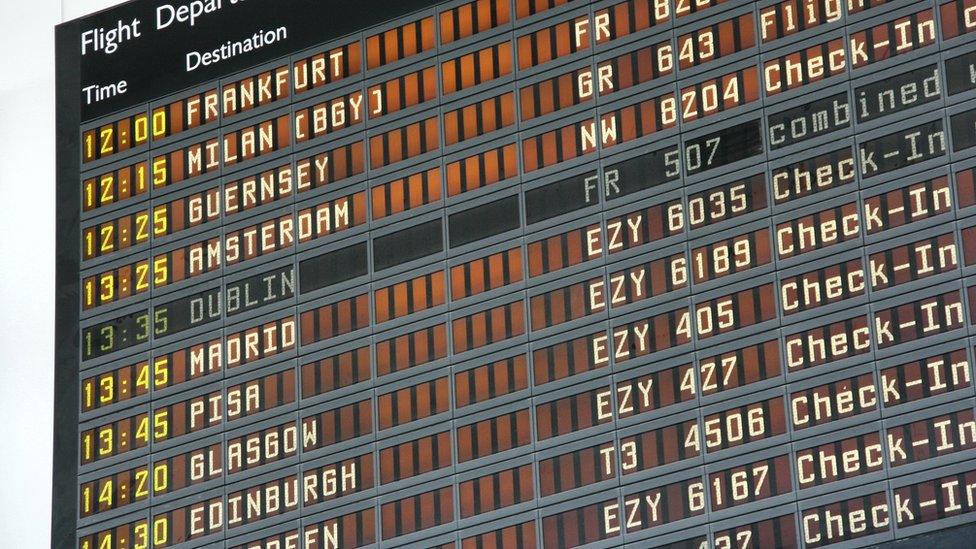
Airports in Scotland are supporting the move
A Scottish government spokesperson added: "We recognise that there are important environmental issues to consider.
"That is why we are working with environmental groups such as Stop Climate Chaos Scotland and Scottish Environment Link on our stakeholder forum and currently consulting on a strategic environmental assessment as part of developing our proposals."
Both Edinburgh and Glasgow airports are supporting the move.
Edinburgh Airport's chief executive, Gordon Dewar, said the reduction would bring in an extra 18 million passengers to Scotland and generate 10,000 new jobs in tourism.
Amanda McMillan, chief executive of AGS Airports Limited which owns both Aberdeen and Glasgow airports, said APD currently put Scotland's airports at a "severe disadvantage" given its position on the edge of Europe.
The largest airline operating in Scotland, Easyjet, has also welcomed the 50% cut.
Sophie Dekkers, the company's UK director, said: "Cutting the tax will boost tourism, investment and business activity in Scotland.
"Research by PwC has shown that abolishing APD would have a positive effect on jobs and growth, as well as public finances in the longer term."
- Published14 March 2016
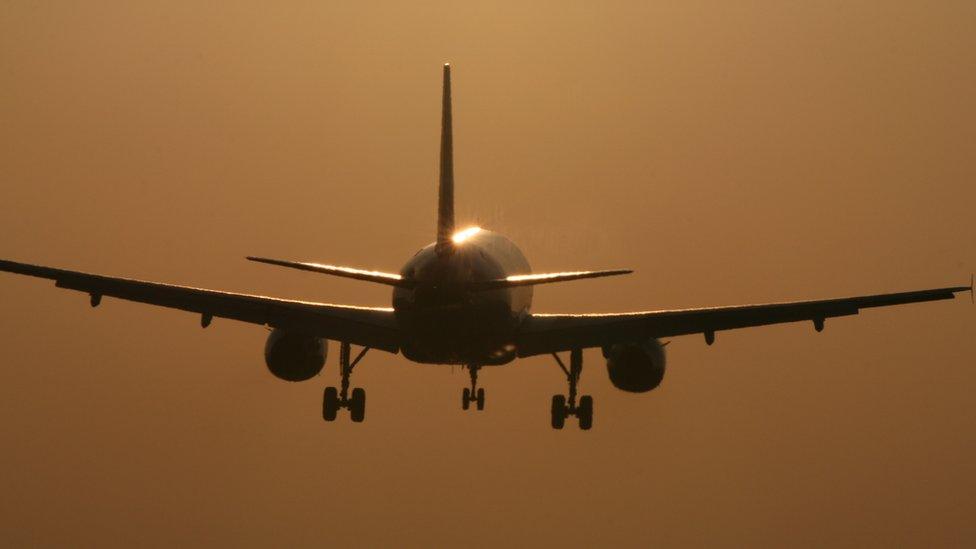
- Published25 February 2016
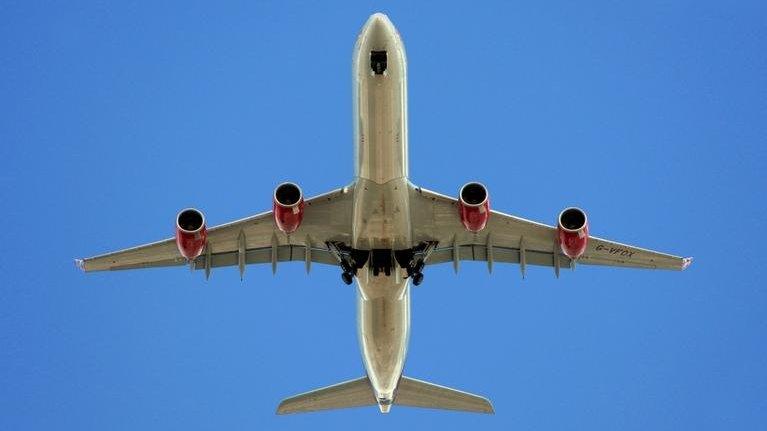
- Published9 March 2015
